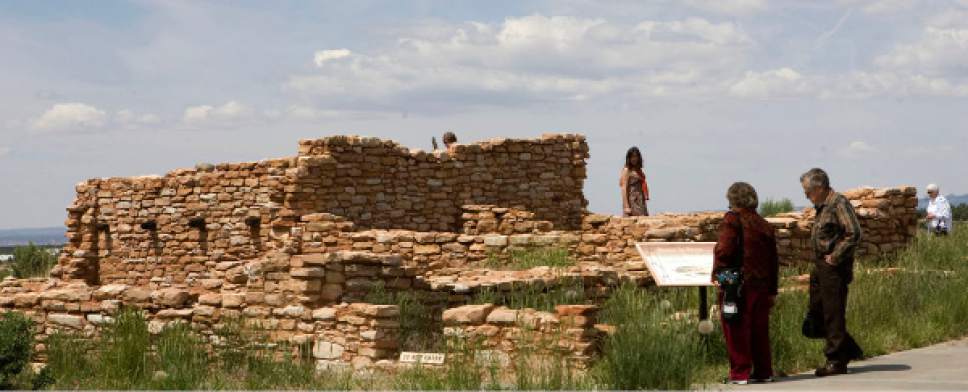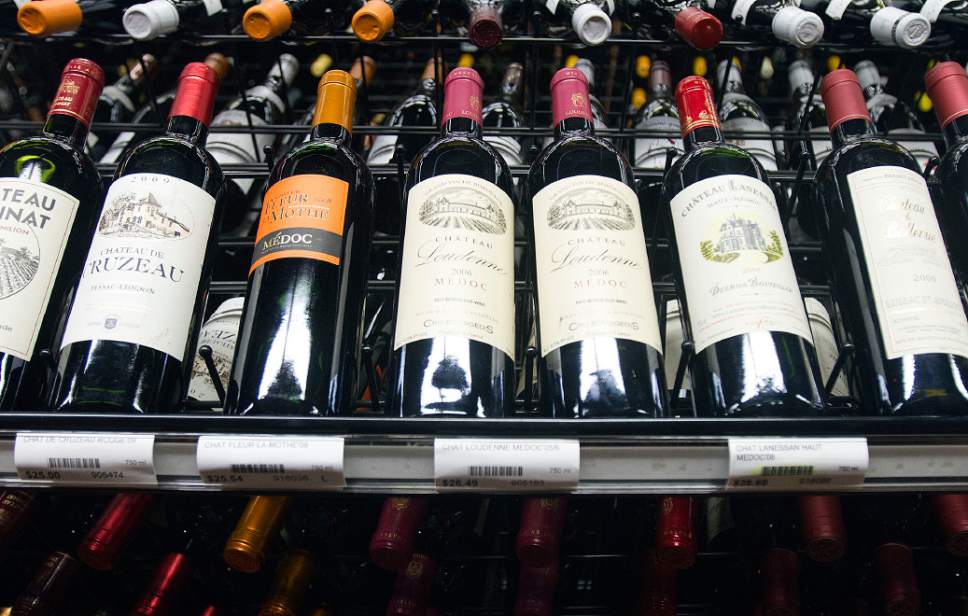This is an archived article that was published on sltrib.com in 2017, and information in the article may be outdated. It is provided only for personal research purposes and may not be reprinted.
In the southern Utah town of Blanding — one of the few cities in the state that still bans alcohol sales — it's not unusual for tourists to leave a restaurant or grocery store when they learn they can't buy beer or wine.
The lack of booze is an issue that has brewed in this dry town for 50 years, always pitting conservative residents against those interested in boosting tourism and development.
It came up again last month, when business owners asked the city to reconsider the ban. The City Council decided to put the issue to a vote and a question will be placed on the town's Nov. 7 ballot asking residents if they are in favor of beer and wine sales within city limits.
For a small town, with 3,500 residents, it's an important decision, said City Councilman Joe Lyman.
"It's like making an amendment to the U.S. Constitution," he said in a telephone interview. "It's a fundamental change to the community, and you don't make a change of this magnitude without a vote."
Blanding has banned alcohol sales since 1967, Lyman said. There were attempts in 1973, 1983 and, again, in 1988 to reverse the prohibition, but all were unsuccessful.
Councilman Robert Ogle, who owns the Cliff Place Motel in Blanding, says the city is interested in creating more economic development and the ballot question serves as "an investigative process to see if Blanding wants to grow up."
"We're looking at as many options as we can," he said. "Alcohol may be a benefit to Blanding, but that is a decision so important we didn't want the City Council alone to make it."
Blanding is one of four cities in San Juan County that ban alcohol sales, according to statistics from the Utah Beer Wholesalers Association.
The towns of Aneth and Navajo Mountain, located within the Navajo Reservation, and White Mesa on the Ute Reservation, also are dry.
Statewide, there another five dry cities, including Highland, in Utah County; Holden and Scipio, in Millard County; Aurora, in Sevier County; and Hatch in Garfield County.
In Blanding, the closest place to buy beer is Shirt Tail Junction, a convenience store about three miles out of town. The other options are to drive 26 miles south to Bluff or 20 miles north to Monticello, where there is a state liquor store.
As a gateway to many of Utah's favorite tourist attractions, including Lake Powell, Bridges National Monument, Edge of the Cedars State Park and Bears Ears National Monument, Blanding gets a large influx of tourists each year.
Many of those out-of-town guests are disappointed to learn they can't buy beer at the grocery store or get a glass of wine with dinner, said Sharon Guymon, who co-owns the Homestead Steakhouse with her husband, Gary. They are among the business owners who would like to see the ban on alcohol sales lifted.
"I've had disgruntled customers leave the restaurant because they couldn't get a drink," said Guymon, noting that she is a Mormon who abstains from alcohol.
"I don't drink coffee or tea, either," she said, "but I serve those in my restaurant because it's a convenience for customers."
Guymon said when city leaders instituted the ban 50 years ago, they wanted to rid the city of bars and saloons. "At that time, it was probably good, but today with cars and tourism, people can get whatever they want," she said. "We're not advocating for hard liquor or bars. We just want to be able to serve a glass of wine or beer in the restaurant."
Clark's Market, Blanding's main grocery store, is part of a Colorado-based chain that has nine stores, and none sells alcohol, said store manager Craig Stanley.
The Blanding vote wouldn't make the company change its policy, he said, "so I can't imagine us carrying beer."
The only other sit-down restaurant in Blanding is Yaks Center Street Café. Owner Tamy Jaramillo said she won't serve beer or wine, even if the ban is overturned. The cafe is only open for breakfast and lunch, and it has several employees who are under age 21.
"I'd have to get rid of half my employees" to sell alcohol, she said. And under state law, the cafe would also have to construct a barrier —aka Zion Curtain — or some other designated dispensing area.
"I can't see where it benefits me at all," she said.
One thing the ballot question will do is get people to the polls Nov. 7, Jaramillo predicted. "All the old-timers [who want to keep the ban] will all get out vote. So I doubt it will pass."





